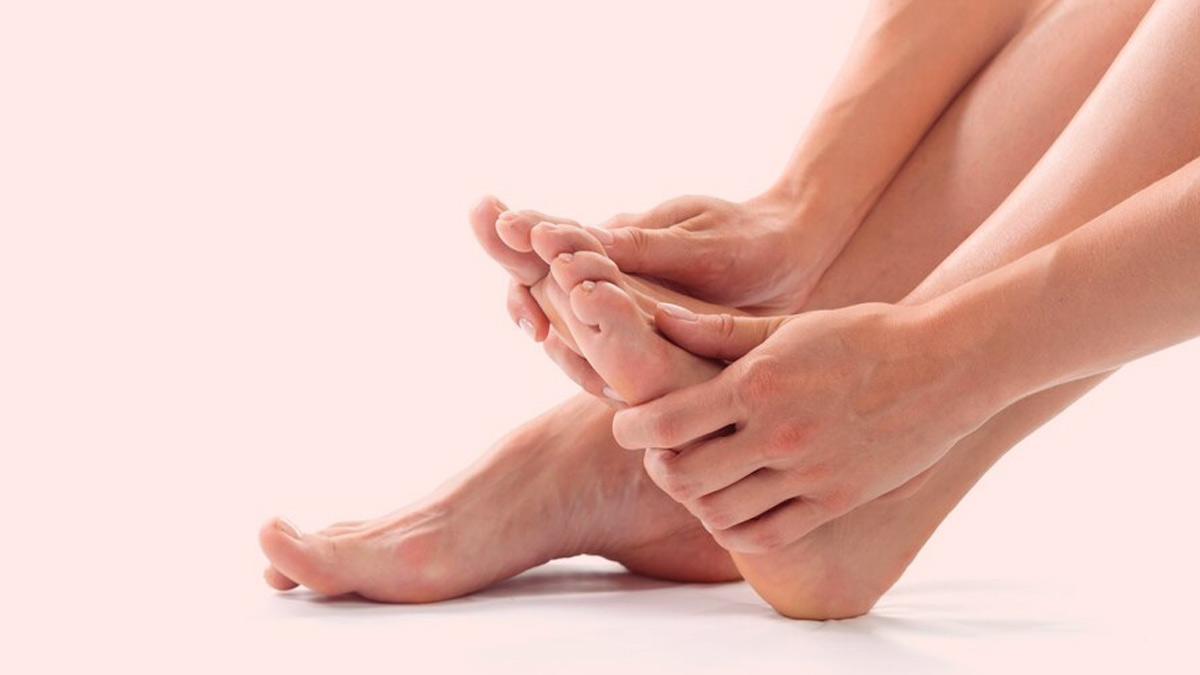
Foot soreness can impact one's everyday activities and quality of life. Foot discomfort can occur anywhere on the foot, including the heel, arch, and toes. It is typically an indication of an accident or underlying medical issue. Identifying the cause might help you receive the appropriate treatment.
Table of Content:-
To know the probable causes of foot soreness is important for addressing the underlying issues and finding relief. Here are seven frequent explanations for foot discomfort:
1. Improper Footwear
Wearing shoes that don't fit properly or lack adequate support can lead to foot discomfort. High heels, tight shoes, or shoes with insufficient cushioning can cause pressure points, blisters, and pain.

Also read: Combat The Monsoon Cold: Effective Home Remedies To Alleviate Discomfort
2. Overuse or Injury
Overuse injuries, such as plantar fasciitis, Achilles tendinitis, or stress fractures, can result from repetitive movements or excessive strain on the feet. These conditions often cause pain, swelling, and stiffness.
3. Flat Feet or High Arches
Structural abnormalities, such as flat feet (pes planus) or high arches (pes cavus), can contribute to foot discomfort. Flat feet may lead to overpronation, while high arches may result in supination, both of which can cause strain and pain.
4. Foot Conditions
Various foot conditions, including bunions, corns, calluses, hammertoes, and ingrown toenails, can cause discomfort and pain. These conditions may develop due to genetics, improper footwear, or biomechanical issues.
5. Obesity or Excess Weight
Carrying excess weight puts increased pressure on the feet, ankles, and lower limbs, leading to discomfort, fatigue, and a higher risk of developing foot problems such as plantar fasciitis and osteoarthritis.

6. Poor Posture or Alignment
Incorrect posture or misalignment of the feet, ankles, knees, or hips can result in uneven weight distribution and stress on the feet. This can lead to pain, fatigue, and discomfort, especially during prolonged standing or walking.
7. Medical Conditions
Certain diseases, such as arthritis, diabetes, peripheral neuropathy, and circulatory disorders, can cause foot discomfort and increase the risk of complications. These conditions may impair sensation, blood flow, or joint function in the feet.
Also read: 7 Sitting Exercises To Prevent Body Discomfort
Addressing Foot Discomfort
- Proper Footwear: Choose shoes that provide adequate support, cushioning, and room for your feet to move comfortably.
- Orthotic Inserts: Consider using orthotic inserts or custom-made shoe inserts to provide additional support and alignment for your feet.
- Rest and Ice: If you've overused your feet or experienced an injury, rest, ice, and elevate your feet to reduce inflammation and pain.
- Stretching and Strengthening Exercises: Perform exercises to stretch and strengthen the muscles, tendons, and ligaments in your feet and ankles to improve flexibility and stability.
- Weight Management: Maintain a healthy weight to reduce the pressure on your feet and lower the risk of foot problems associated with obesity.
- Medical Evaluation: If foot discomfort persists or worsens, consult a healthcare professional, such as a podiatrist or orthopedic specialist, for a comprehensive evaluation and personalized treatment plan.
Reasons for foot discomfort and implementing appropriate strategies for prevention and management, you can improve foot health, alleviate pain, and enhance overall well-being.
Also watch this video
How we keep this article up to date:
We work with experts and keep a close eye on the latest in health and wellness. Whenever there is a new research or helpful information, we update our articles with accurate and useful advice.
Current Version